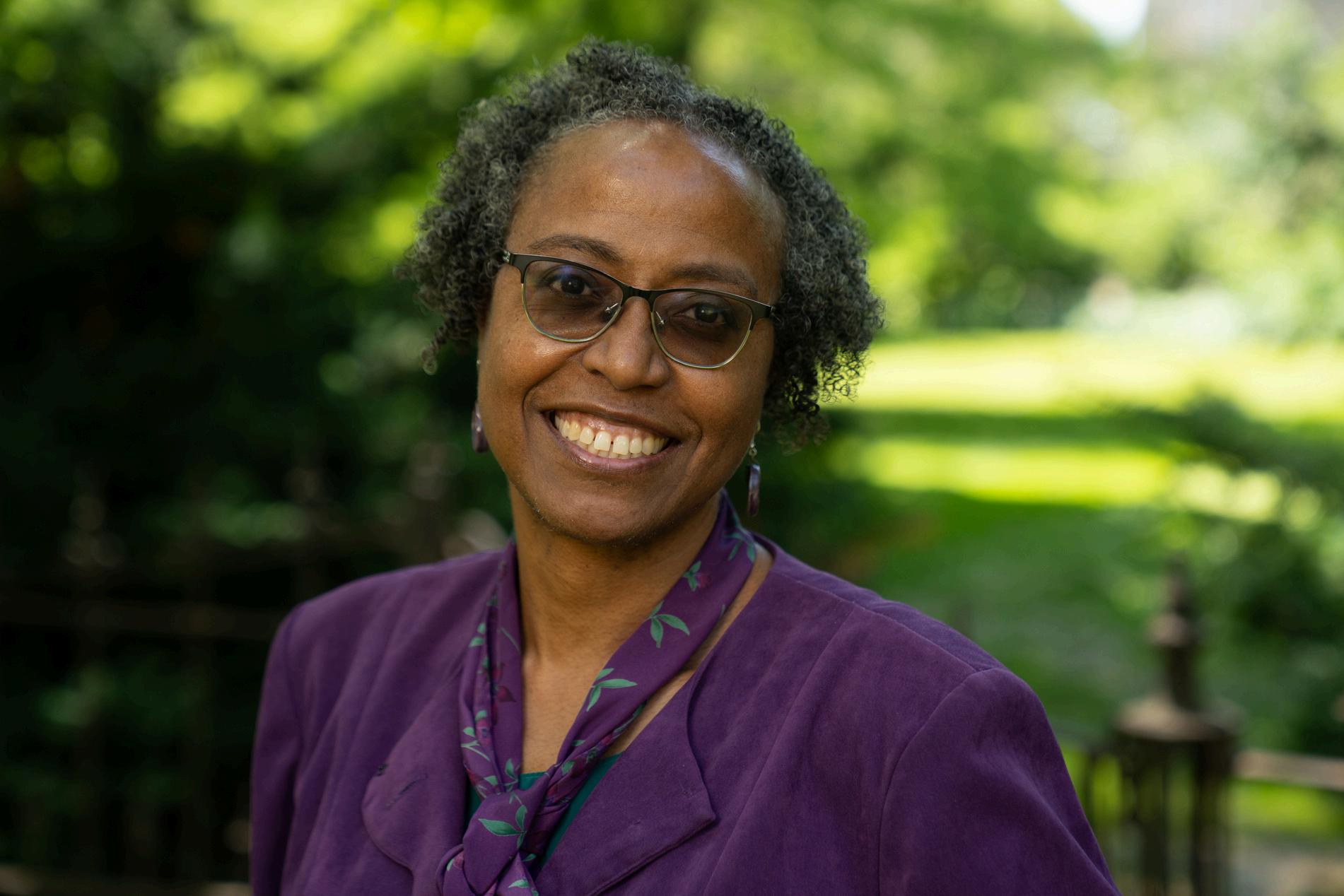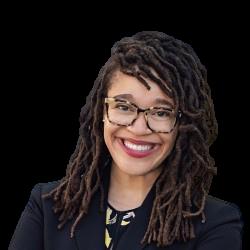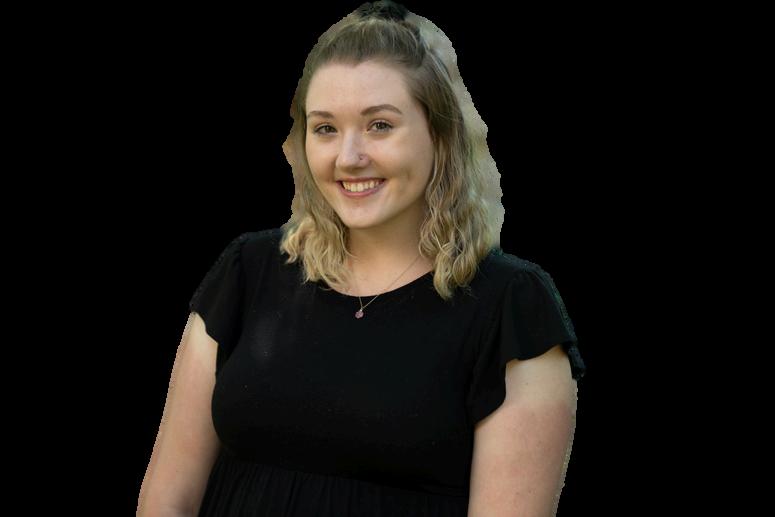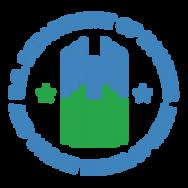ANNUAL REPORT


WORDFROM OURDIRECTOR
*

MISSION&VISION
*
MEETOURTEAM
EQUITABLEFAMILY & COMMUNITYWELL-BEING
AWARDS&HONORS
* COMMUNITYINNOVATION
*
* CURRENTPROJECTS
*
CENTEREVENTS
*
* AFFILIATEWORKSHOPS



WORDFROM OURDIRECTOR
*

MISSION&VISION
*
MEETOURTEAM
AWARDS&HONORS
* COMMUNITYINNOVATION
*
* CURRENTPROJECTS
*
CENTEREVENTS
*
* AFFILIATEWORKSHOPS
Reflecting on the past year, I am filled with a sense of pride and gratitude for what our team has accomplished. Our work has spanned from providing training in conducting enhanced genograms that help people heal by understanding their core story, to innovating in research tools, to participating in interdisciplinary data analysis for the Detroit Reparations Task Force, to continuing our ARPA evaluation in Washtenaw County, to launching a new research study that explores non-traditional approaches to affordable housing.
We continue to support data, research, and evaluation for Detroit’s summer youth employment program Grow Detroit’s Young Talent (GDYT) and share a link to our latest youth exit survey report from 2023 While continuing to work one-on-one in evaluation activities with Community Priority Fund grantees funded by Washtenaw County, we also piloted an innovative categorical group logic model. Our policy work on housing has gained momentum with a new grant from HUD We now are gathering data on the experiences of community residents that have made the transition from renting to home ownership.
We always welcome new faculty affiliates and community partners. This past year we hosted four virtual workshops featuring our affiliate research and expertise This is a tradition we will continue
I appreciate the dedication and passion of our Center team and partners. Thanks for your continued support and collaboration Together, we can create a more equitable future for the individuals and communities we serve
With thanks,
Dr. Trina R. Shanks
Harold R. Johnson Collegiate Professor of Social Work Director of Community Engagement
Founding
Director, Center for Equitable Family & Community Well-Being
University of Michigan
School of Social Work

"Our mission is to foster equitable distribution of power and resources by utilizing collaborative relationships, innovative practices, and community approaches. We engage intentionally with communities to welcome them into the research process and provide mutually beneficial opportunities that prioritize their expertise.”
"To amplify ideas that empower families and communities to thrive."
The way to right wrongs is to turn the light of truth upon them -Ida B Wells




Trina R. Shanks Director
Trina is Harold Johnson Collegiate Professor and Director of Community Engagement at the University of Michigan School of Social Work and Founding Director of the Center for Equitable Family & Community Well-Being. She is Principal Investigator on the Washtenaw County Community Priority Fund evaluation.

Camille R. Quinn Faculty Affiliate
Camille is a Faculty Affiliate and has presented on grant funding to the team, faculty affiliates and supporters of the Center. She serves as a lead evaluator for six ARPA-funded organizations in Washtenaw County, focusing on equity and community violence prevention.

Patrick Meehan Program Manager
Patrick is an Assistant Research Scientist with the Center, and the Principal Investigator on the Detroit Expired LIHTC Conversion Project. His research interests include racial equity in housing finance and homeownership, including wealth-building through homeownership and financial products to achieve homeownership.

Ashley E. Cureton Faculty Affiliate
Michael Kloc Project Coordinator
Michael, leads community outreach & coordination, providing project management & visuals for our Center's ongoing projects. He serves as a lead evaluator for 5 ARPA-funded organizations in Washtenaw County, focusing on equity and community participation with an emphasis on reciprocity and relationships.

Shelby Spangler MSW Field Student
Ashley Cureton (Bhavalkar) is an assistant professor in the School of Social Work and Marsal Family School of Education. She is also a faculty affiliate at the Center. She identifies as a forced migration scholar who seeks to improve the educational, socioemotional, and environmental outcomes of refugee youth and their families in the U.S and abroad.
Shelby Spangler, MSW Field Student at the Center for Equitable Family & Community Well-Being, supports work across all projects. She assists with HUD data collection, visualizes qualitative data for GDYT, and contributes to ARPA program evaluations. Her dedication to bridging research with community efforts strengthens the Center's mission in advancing equity
Trina Shanks:
SSWR 2024 Social Policy Researcher Award
2024 School of Social Work Diversity, Equity, and Inclusion Impact Award
Serves as U.S. District 11 Secretary for the Rhodes Trust
Ashley E Cureton:
Lester Monts Award, Center for Educational Outreach, University of Michigan, Ann Arbor, May 2024
LEAD Global Health Fellow, Washington University in St. Louis, June 2024
– August 2024
Research Training Program (MHRT); Grant Number T37 MD014218
Alumni Graduation Speaker, Center for Teaching Excellence and Innovation, Johns Hopkins University, Mar. 2024
Writing Ambassador, OpEd Project, Feb. 2024
Write to Change the World Award, OpEd Project, Nov. 2023
Camille R Quinn:
Camille was recently awarded the National Institute of Minority Health and Health Disparities Loan Repayment Program renewal award (2L60MD017910-02) for $100,000 for her project, “Testing a healing informed stress reduction intervention for court-involved Black girls and their parents/caregivers “ from 2024-26.
Patrick Meehan:
Principal Investigator, Detroit Expired LIHTC Conversion Project, HUD
Cooperative Agreement H-21754, $330,000
November 2023, presented paper entitled, "The racial wealth gap at the low end of the mortgage distribution: Evidence from smallest-dollar mortgage lending in Detroit", at the annual conference for the Association of Public Policy Analysis and Management, Atlanta, GA.
Michael Kloc:
First published manuscript: “It's kinda like a sick joke”: Young people, labor market experiences, and the COVID-19 pandemic: https://doi.org/10.1111/joca.12604
As part of our commitment to capturing and shaping future homeownership narratives within our community, we've introduced an innovative homeownership journal. This qualitative exercise goes beyond documenting experiences; it fosters creativity and visioning, offering a unique space for residents to imagine and articulate their future in homeownership. The journals encompass six essential categories:
Financial Decision Making
Lender & Mortgage Experiences
Trust & Community Bonds
Futurism & Dreams
Community Visioning








We gathered with 23 organizations in Washtenaw County to co-create categorical logic models, addressing critical community challenges through ARPA funding. Our discussions focused on the current landscape and how ARPA initiatives are shaping our community, culminating in visioning exercises to strategize for the future.

This process took place via zoom on April 16th 2024.

We started by reviewing current ARPA-funded outputs, then shifted to envisioning a future logic model. This process identified the key inputs needed resources, partnerships, and activities —to achieve long-term goals and sustain systemic change.


Grow Detroit’s Young Talent (GDYT) is a citywide summer jobs program that trains and employs young adults between the ages of 14 and 24 for up to 120 hours. Youth participants must be permanent residents of the City of Detroit and be eligible to work in the United States. There are a broad range of jobs available to the participants.
Examples of jobs include: community cleanups, event planning, accounting, retail and the Junior Police or Fire Cadets to name a few.
GDYT Jobs placements are based on a developmentally appropriate, tiered model for summer employment:


Introducing the Detroit Housing Dashboard, a collaborative initiative by the Center for Equitable Family and Community Well-Being, Southwest Economic Solutions, and DC Palmer LLC. By harnessing HUD form 9902 data from 14 certified housing counseling agencies, coupled with insights from the City Assessor's Office and Home Mortgage Database, our dashboard illuminates mortgage trends across Detroit's neighborhoods from 2011 to 2023, offering crucial insights into homebuying patterns and informing equitable housing strategies.

Over the past year our team of evaluators have been working closely with The Community Priority Fund (CPF) 23 organizations who receive ARPA funding aimed at addressing equity concerns within 5 key categories:

Direct Assistance to Households
Housing & Homelessness
Early Childhood Education
Community Violence Interventions
At the end of this project each organization will be situated to tell their story of implementation and improved capacity. The main project deliverables:
Tailored group sessions to conceptualize racial equity & build capacity in Washtenaw County.
Technical assistance throughout project
Logic models
Tailored evaluation plans specific to organizations needs
Impact statement visuals
Documented evidence based practices



In addition to our teams working closely with the Community Priority Fund we are also hard at work to understand the role ARPA has played throughout other funded projects in the county!


The Rescue Plan encompasses endeavors such as:
Establishing a financial empowerment center.
Supporting small businesses.
Expanding broadband access.
Enhancing infrastructure.
Fortifying climate readiness.
Anticipate our final report by the end of our contract, at which point we will disseminate the findings throughout the county.




Through the voices of community residents, both in interviews and personal journal reflections, this project explores the transition from renting to homeownership across two former LIHTC developments in Detroit. By collecting their experiences with credit, money management, household finances, and more, we will be able to recommend ways lenders can evaluate mortgage applications to make housing finance available to more families in Detroit and around the country.
So far our team has interviewed 21 Newberry homeowners who were former renters. Our goal is to interview at least half of the Newberry residents before we move to interviews with University Grove.
This project was made possible through a $330,000 grant from the U.S. Department of Housing and Urban Development. Curious to learn more? Visit our webpage

This map represents the target areas of our study.

The Center participated in a partnership between the Detroit Reparations Task Force and various University of Michigan members involved in preparing an Historical Injustice and Harms report. Dr. Trina Shanks was faculty advisor to an interdisciplinary class organized by Rackham Graduate School. She supervised four MSW students that analyzed historical records of interviews about Hastings Street from Bentley Historical Library archives and also interviewed two Detroit residents recommended by one of the Detroit Task Force sub-committees.
In addition, the Center collaborated with Poverty Solutions to generate maps based on Census data that documented changes in home ownership as well as Black resident displacement. Dr. Patrick Meehan led this portion of the work





Friday September 15th 2023
Our Center hosted a transformative workshop on enhanced genograms. Participants uncovered self-sabotaging beliefs and broke free from unconscious chains, cultivating inner harmony This event provided CEU credits and equipped attendees with skills to guide transformative journeys for themselves and others



Following the workshop our team collaborated with Terry & Sara to develop an interactive CEU course that can be accessed here!


December 15th 2023

This informal event allowed for meaningful connections, fostering collaboration and community building around ARPA initiatives.

We hosted an ARPA Happy Hour at Black Rock Bar & Grill, bringing together members of the Community Priority Fund and CBOs.

October 2023 Justin presented his early-stage manuscript, "Fatherhood Among Black Youth in Extended Foster Care: Messages, Experiences, and Needs," seeking feedback to refine it for journal submission Dr Jennifer Bellamy from the University of Denver served as the discussant.


Associate Professor of Social Work at the University of Michigan, for a session titled "Planning and Writing a Grant Proposal: What You Need to Know " Dr Quinn provided attendees with essential strategies for planning, researching, and drafting grant proposals.
February 2024, presented on the topic of developmental assets that prevent suicide in young Black sexual minority males His insightful talk sparked meaningful discussions on protective factors and mental health.


May 2024, PhD candidate at the University of Chicago and Center
Affiliate, presented his research, "Invisible Wounds and Resilient Bonds," on the impact of juvenile confinement on Black siblings, sparking rich discussions on abolition and juvenile law.
At the Center for Equitable Family & Community Well-Being, we are passionate about creating impactful, community-engaged research. We believe the best ideas come from collaboration, and we ’ re excited to partner with you to develop innovative workshops that uplift and empower our communities.
If you have an idea for a workshop that aligns with our mission and values whether it’s around housing, workforce development, child savings accounts, financial wellness or other critical issues let's make it happen!
Communityengaged/driven and innovative approaches
Workshops that foster learning, engagement, and empowerment
Topics related to community well-being from local to global perspectives, including housing, workforce development, environmental justice, child savings accounts, and more! Interactive and inclusive experiences that welcome diverse voices
HOW TO MAKE A PITCH?
Please use the URL or scan the QR code for your workshop proposal with a brief description of your idea, its connection to community well-being, and the impact you hope to achieve. Let’s create change together!


Areyouinterestedinequityand community-engagedresearch?Would youliketoconnectwithlike-minded scholarstoimprovethelivesofchildren andfamilies?

ConsiderjoiningtheCenterforEquitable FamilyandCommunityWell-Beingasa FacultyAffiliate.AsaFacultyAffiliate,you willbeinvitedtosharemanuscriptsand proposalsindevelopmentatour
CommunityEquityWorkshopSeriesevery twomonthsduringtheacademicyear. AffiliatescanalsocollaboratewithCenter stafftoorganizefutureeventsor collaborativeresearchthatbringscholars andcommunitymemberstogether.


The Center for Equitable Family and Community Well-Being was established in 2020 at the University of Michigan School of Social Work.
"Our mission is to foster equitable distribution of power and resources by utilizing collaborative relationships, innovative practices, and community approaches. We engage intentionally with communities to welcome them into the research process and provide mutually beneficial opportunities that prioritize their expertise.”
For more information about our Center